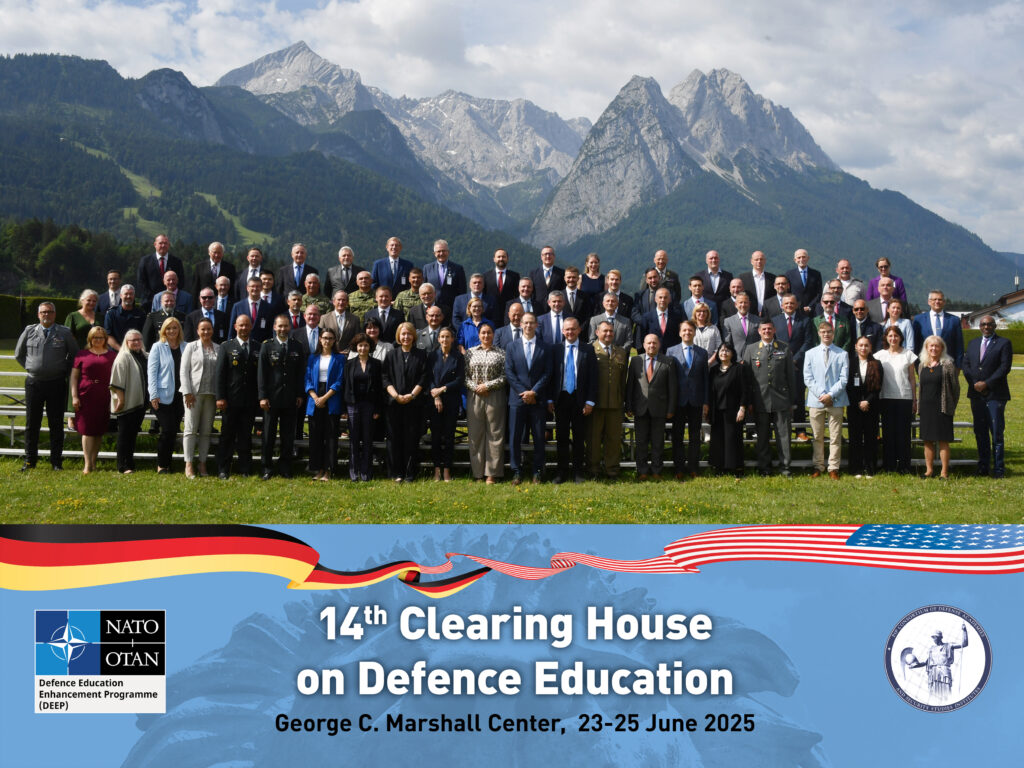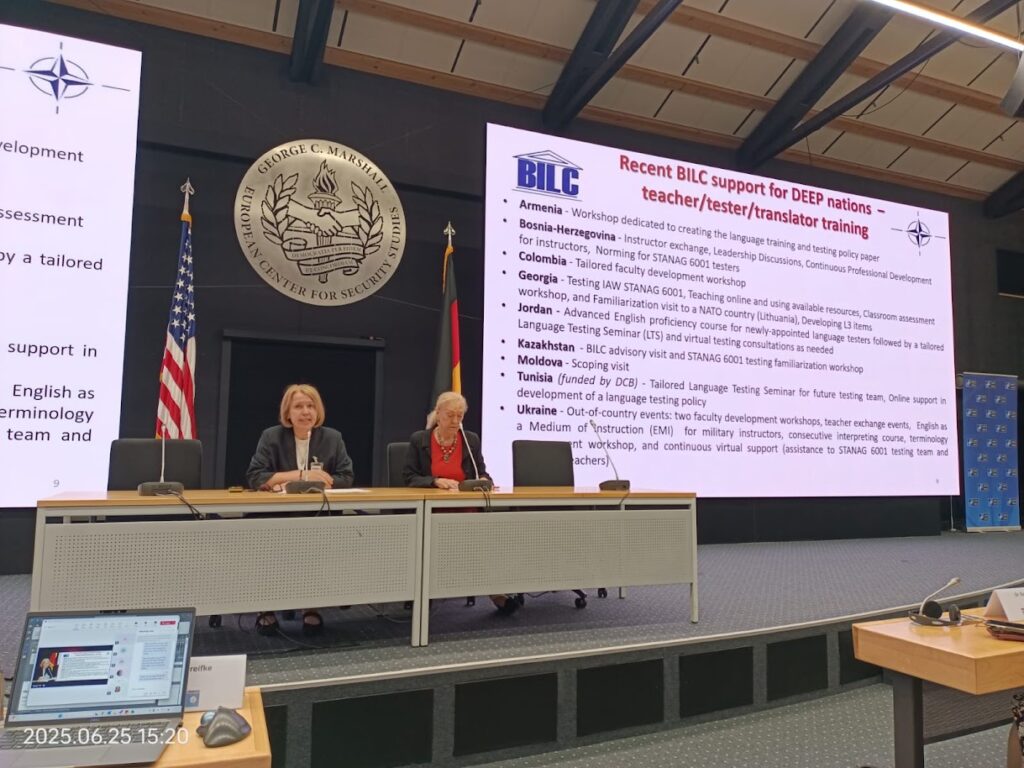June 23 – 25, 2025
George C. Marshall European Center for Security Studies, Garmisch-Partenkirchen, Germany
Ms. Satu Patronen (Finland), the BILC Secretary, Ms. Peggy Garza (PLTCE/U.S.A.), the BILC Associate Secretary, and Ms. Irena Prpic Djuric (Croatia), a former BILC Chair, participated in the 14th Clearing House on Defence Education.
In a recent document, AC/340-N(2025)0020 (R), it was pointed out that defense education is key for transformation and reforming institutions. Through the Defence Education Enhancement Programme (DEEP), NATO helps partner countries set up and improve their defense and military education systems. Since 2012, the Clearing House on Defense Education has been vital in coordinating NATO’s efforts and national initiatives to support DEEP projects. DEEP focuses on providing customized help to partner countries to build up their military education programs.
Since English is NATO’s working language, BILC offers guidance on language training and testing. Because of this, BILC supports military educational institutions by sharing best practices and expertise. Their assistance involves developing effective language training systems, creating programs, and setting up reliable STANAG 6001 national testing teams.
During the event, Ms. Garza and Ms. Prpic Djuric delivered a twenty-minute presentation to update the Clearing House participants on what BILC does, how it is organized, its recent projects, and funding options available for partner nations through NATO. They emphasized the significance of BILC in promoting cooperation among member states and improving language training and assessment within the DEEP military education program. The BILC representatives also touched on their role with STANAG 6001 and stressed the importance of ongoing professional development for language experts through BILC events and courses.

